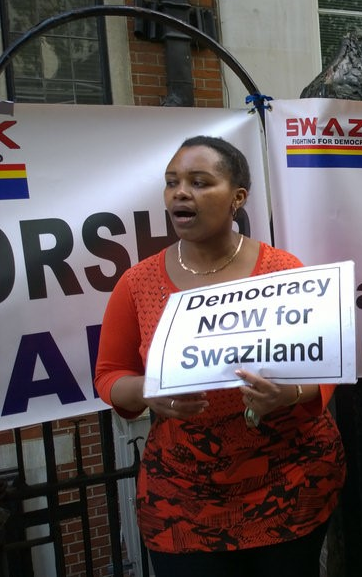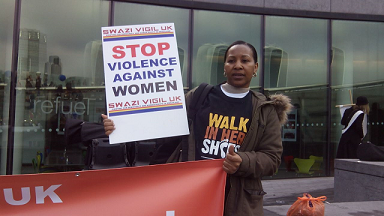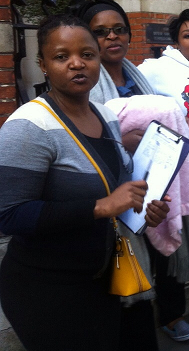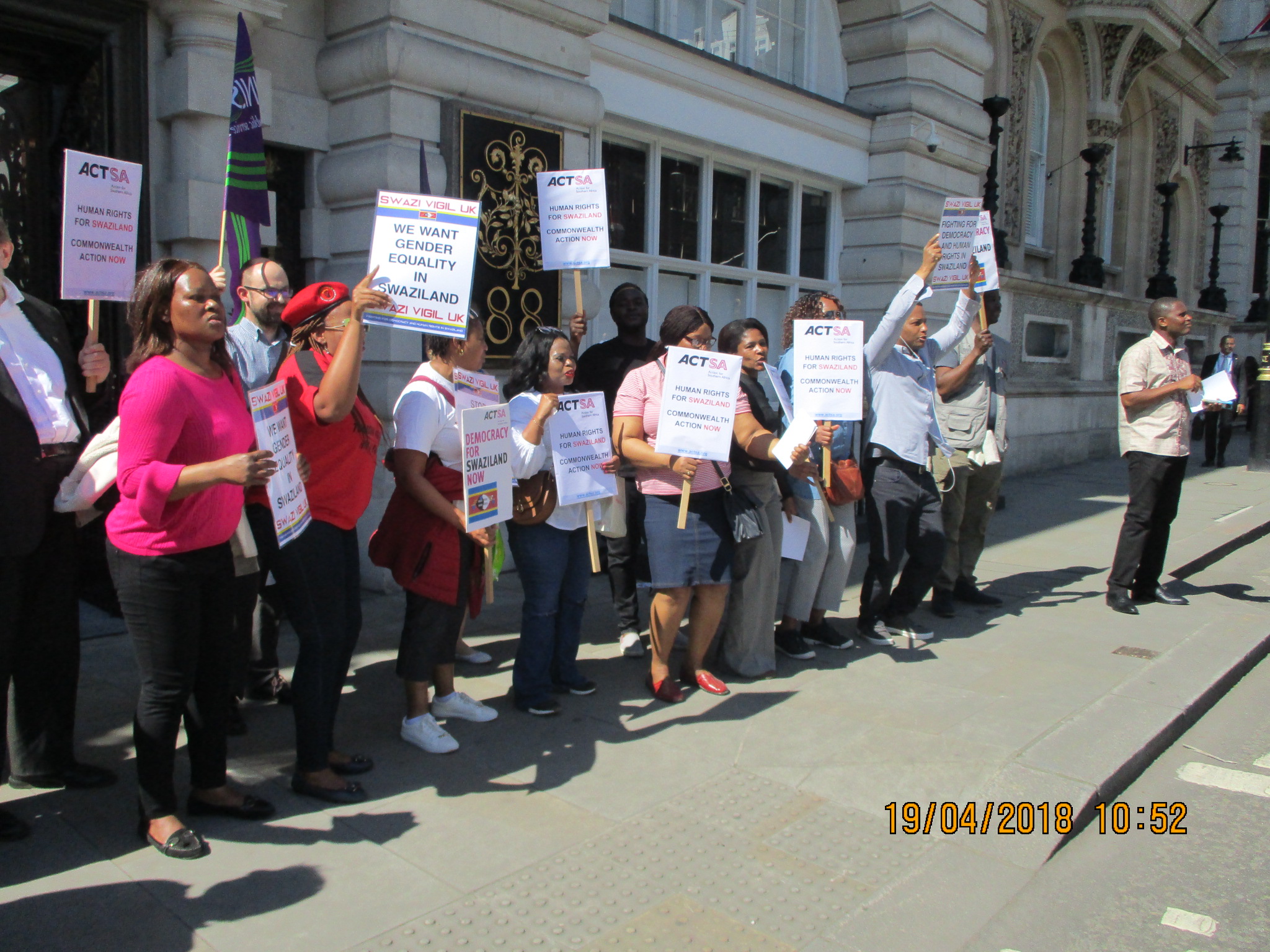Human-rights problems in Swaziland include “extrajudicial killings by security forces; mob killings; police use of torture, beatings, and excessive force on detainees; police impunity; arbitrary arrests and lengthy pre-trial detention; arbitrary interference with privacy and home; restrictions on freedoms of speech and press and harassment of journalists; restrictions on freedoms of assembly, association, and movement; prohibitions on political activity and harassment of political activists; discrimination and violence against women; child abuse; trafficking in persons; societal discrimination against members of the lesbian, gay, bisexual, and transgender (LGBT) community; discrimination against mixed-race and white citizens; harassment of labour leaders; restrictions on worker rights; and child labour.
The Kingdom of Swaziland has the distinction of being sub-Saharan Africa's last remaining absolute monarchy. Though it is classed as a lower income country, income distribution is skewed, with nearly eighty percent of its 1.2 million people living in absolute poverty. Years of government corruption, excessive spending by the royal family and a drop in revenue from the South African Customs Union has left Swaziland in a deep economic crisis. The crisis has resulted in a forty percent unemployment rate and massive reductions in public services such as education and health care. Increased financial woes resulted in further reductions in Swaziland's flailing health care sector. The country suffers the highest HIV prevalence rate in the world at twenty-six percent but has failed to secure adequate treatment for its citizens due to shortages in antiretroviral drugs and HIV testing. According to the World Health Organization, life expectancy in Swaziland is 48 years of age.
Swaziland endures a political crisis, as well. King Mswati III retains absolute control over the executive, legislature and is immune from civil suits and criminal prosecution under Swazi law. Political parties are banned from participation in elections and many pro-democracy organizations have been deemed terrorist entities by draconian counter-terror legislation. Freedom of press is also severely restricted as many journalists practice self-censorship in fear of retribution from the government.
Amnesty International is concerned with ongoing violations of the rights to freedom of assembly, freedom of association and freedom of expression by the government of Swaziland. Pro democracy leaders and activists suffer arrest, torture, beatings, pro-longed detention and forced searches of their homes and offices. Peaceful protests and anti-government demonstrations are often met with violent dispersal by security forces. Civil society organizations, trade unions and the media undergo increased harassment and surveillance.
The credibility of Swaziland's September 2013 elections was questioned by the African Union Election Observer Mission due to the prohibition of political parties. The African Union called on the government of Swaziland to implement the African Commission on Human and People's Rights 2012 Resolution on Swaziland. Among other objectives, the resolution urges Swaziland to ensure and protect the human rights to freedom of expression, freedom of association and freedom of assembly.
VIVA SWAZI VIGIL – PHAMBILI!
By - Nontobeko M.Maseko.
References
2015 Amnesty International USA 5 Penn Plaza, New York, NY 10001 SWAZILAND HUMAN RIGHTS.
http://www.amnestyusa.org/our-work/countries/africa/Swaziland
- Details
Women in Swaziland face unequal social, economic, legal, political and cultural treatment. Some laws still treat women as minors and second class citizens, despite the 2005 Constitution's Bill of Rights declaring that women should be free from any form of discrimination or abuse.In 2009 the house of assembly in Swaziland passed the Sexual Offences and Domestic Violence Bill, but still waiting to be signed by King Mswati III. In Swaziland women are not allowed to own property especial if they are married in Swazi Law and Custom. The banks will refuse to open an account or grant a loan to a woman without the husband's consent if she is married through Swazi Law and Custom. If she wants to lease land (own land) she has to a male relative to act as a guarantor or her husband. In Swaziland if a woman is widowed, movement and travel is highly restricted, and mingling and mixing with the public has some imposed restrictions as well. One of them is that she does not walk right through the crowd. Widows are not allowed to work in some environments and sectors.In Swaziland there has been a drastic deterioration in Human Rights conditions and respect for the rule of law in recent years. Political activism and trade unions are subjected to restrictions, which is in violation of international law, including banning them under the draconian Suppression of Terrorism Act 2008, arbitrary detention and unfair trials. Last year saw a number of worrying developments that further constrained the ability of people to engage in politics, in particular to exercise their right of freedom of expression and assembly. High profile examples included the sentencing of journalist Bheki Makhubu and lawyer Thulane Maseko to two years in prison after writing an article criticising Swaziland's judiciary. Mario Masuku, president of the People's United Democratic Movement (PUDEMO), and Maxwell Dlamini from the Swaziland Youth Congress, were also arrested in May last year for allegedly seditious comments contravening the controversial terrorism legislation.
As Swaziland Vigil UK, we will continue fighting for Freedom of Speech, Democracy, Human Rights and Women's Rights until the whole world hears us and there is rule of law and respect for human rights in Swaziland. VIVA SWAZI VIGIL!! VIVA!!By: Rainny Nomvula Dlamini
- Details
The Parliament of the European Union has demanded the release of imprisoned trade union leaders and all political prisoners in Swaziland and called for an investigation of the situation in the kingdom. A European Union press statement said that the Parliament had called for ‘the immediate and unconditional release of Mr Maseko (a prominent human rights lawyer) and Mr Makhubu (Editor-in-Chief of The Nation), given that their imprisonment relates directly to the legitimate exercise of their right to freedom of expression" and also of all political prisoners, including Mario Masuku, President of the People’s United Democratic Movement, and Maxwell Dlamini, Secretary-General of the Swaziland Youth Congress.
Parliament considers the imprisonment of political activists and the banning of trade unions to be in clear contravention of commitments made by Swaziland under the Cotonou Agreement to respect democracy, the rule of law and human rights, and also under the sustainable development chapter of the Southern African Development Community (SADC) Economic Partnership Agreement, for which Parliament’s support will depend on respect for the commitments made.
It calls, therefore, on the Commission (Parliament’s cabinet) to honour its obligation to monitor Swaziland’s adherence to human rights and to labour and environmental conventions under the Generalised System of Preferences (GSP), and to open an investigation to determine whether there has been a serious and systematic violation of the labour rights protected under the GSP.’
The resolution was passed overwhelmingly and was one of three dealing with human rights around the world. Another condemned the abduction of Zimbabwe human rights activist Itai Dzamara.
By: Thobile Gwebu
See: http://www.europarl.europa.eu/news/en/news-room/content/20150513IPR55482/html/Human-rights-Zimbabwe-Thailand-Swaziland – Human rights: Zimbabwe; Thailand; Swaziland.
- Details
Page 17 of 34





 Protest photos on Flickr - Click
Protest photos on Flickr - Click